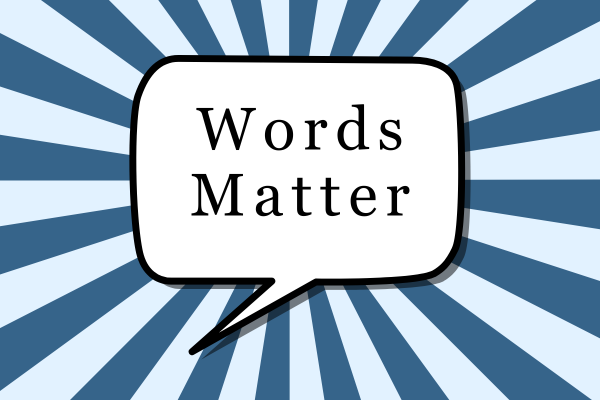When it comes to inclusivity, it’s not about perfection. But we do have a collective responsibility to learn and grow!
Inclusion is a large umbrella, encompassing all efforts to give equal access and opportunities to everyone whenever and wherever possible. Language is one key area where we can improve inclusivity and respect. Many common words and phrases hold historical meanings and connotations—often problematic—of which we are unaware. However innocent our intentions, using these words may offend and/or contribute to oppression.
Here are a few examples that might surprise you…
Grandfathered in: In 1913, there was a class-action lawsuit against “the grandfather clause,” which denied African Americans the right to vote unless their grandfather had voted prior to 1869. This case helped lay the groundwork for the decades of work ahead to secure African Americans’ full rights as citizens granted under the 14th Amendment. Replace the term “grandfathered in” with legacy, old rule, inherited, precedent.
(Source1 Source 2)
Stakeholder: In a colonial context, a stakeholder was a person who drove a stake into the land to demarcate the land they were occupying or stealing from Indigenous territories and people. Replace it with investor, sponsor, partner, collaborator, participant, affected parties. (Source)
Master Suite: The phrase “Master Bedroom” is thought to have been coined in the 1920s by the Sears catalog to advertise a luxury bedroom designed to appeal to a heteronormative nuclear family where the primary breadwinner was masculine. Of course, “master” also denotes a slave owner. Replace with main, primary, or largest bedroom and refer to the accompanying bathroom as the “en suite.” (Source)
Powwow: The term derives from Pau Wau, meaning “medicine man” in Narrtick, a language spoken by the Algonquian peoples in Massachusetts. English settlers began misusing the word to refer to meetings of Indigenous medicine men, and later to any kind of Native American gathering. Native Americans have since reclaimed the term. In more modern times, powwows have become celebrations and displays of Indigenous food, music, dances, and traditional clothing. When referring to a quick, casual meeting, replace “powwow” with meeting, session, or huddle. (Source 1 Source 2)
For further reading, see a full list of words to avoid, their unique histories, and their alternatives here.
This article was inspired by an eye-opening session called “Quick ways to make your content more accessible & inclusive” — by Allison Manley, Director of Marketing for Kanopi Studios as part of NTC, the annual Nonprofit Technology Conference of NTEN.


